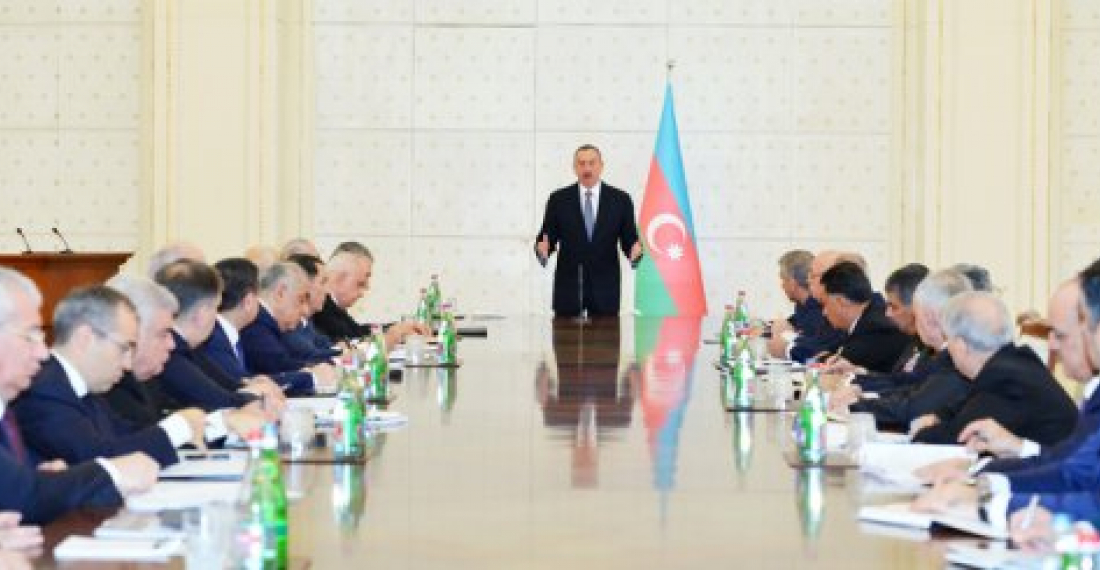Azerbaijan's President ilham Aliev, on Tuesday (10 January) chaired a meeting of the Cabinet of Ministers during which the work of the government in the social and economic spheres in the previous six months was discussed. Speaking at the meeting the Azerbaijani leader also outlined government plans for 2017.The president stressed the importance of macroeconomic stability and keeping single-digit inflation in 2017.
Speaking on foreign policy, President Aliev said that "nearly 20 heads of states and governments visited Azerbaijan. Relations with international organizations expanded. Azerbaijan's stand on liberation of our lands and implementation of United Nations 4 resolutions remains unchanged".
President Aliev said that "the Azerbaijani army exposed the enemy to crushing blow as a result of counter-attack in the battles on the contact line in April 2016 and thousands of hectares of land were liberated".
"April battles are our brilliant victory and show the power of the Azerbaijani state. These fights showed that we will never accept this situation and that we will respond adequately to all provocations. At the same time, a myth of years by Armenia completely destroyed in April battles. They recognized that if no foreign assistance, Armenia cannot withstand us even a week."
President Aliev said that "2016 will be remembered as a year of fundamental economic reforms. The Non-oil sector was in the center of attention as a result of our decision. It is not by chance that we achieved 5% growth in non-oil sector and 2.6 growth in agriculture, despite decrease of GDP as a result of 3-4 fold drop in oil prices. We tackled the crisis and hardship with honor. Completed works, and those underway, will further strengthen this dynamic. Economy and non-oil sector will develop sustainably; new jobs will be created. We will hit set targets".
The President said that wide-ranging measures will be taken to rehabilitate the banking sector this year. Aliyev talked on the importance of establishing industry parks, increasing agricultural production, especially grain, cotton, tea, cocoon and wine, establishing fruit plantations, and said that these can be important sources for foreign currency earning, stressing in this regard the importance of finding markets for the produced goods.
President Aliev issued instructions to the government on the development of infrastructure in the country, such as expansion of gas distributing network, construction of rural roads, and delivery of drinking water projects. The president also touch on the issue of expanding the military potential.
He also noted that he will pay attention to ecological measures, stimulation of tourist flow into the country, expansion of ASAN Service's coverage area and functions, and the completion of first phase construction of Baku International Sea Trade Port in Alat.
source: commonspace.eu with report.az and other agencies
photo: President Ilham Aliev addressing the Cabinet of Ministers on 10 january 2017 (picture courtesy of the press service of the President of Azerbaijan)






